The Hollywood Pantages, the last theater Alexander Pantages built as part of his vaudeville empire, opened for business in 1930. Initially it was a venue for live events, but theater had become increasingly expensive to stage during the Great Depression. Movie screenings were a cheaper alternative and a prime business opportunity. After a period under Fox’s theater group, the venue was purchased by Howard Hughes’s RKO Pictures in 1949. The Pantages then made history, hosting the Academy Awards from 1950 to 1960, including the first televised ceremony in 1953. In the 1970s, the Theatre returned to hosting live productions. After a major renovation in 2000 restored the Theatre’s original Art Deco architecture, the Pantages became the hub for traveling Broadway shows, including Hamilton, The Lion King, and Wicked.


Images: (left) The exterior of the RKO Pantages Theatre during the 1951 Academy Awards ceremony. Courtesy of Academy Awards show photographs, Margaret Herrick Library, Academy of Motion Picture Arts and Sciences; (right) The Hollywood Pantages Theatre. Photo by Joshua White, JWPictures/©Academy Museum Foundation
Alexander Pantages, a Greek immigrant, created an empire of vaudeville venues that dominated the West Coast theater scene in the 1910s. When he conceived of a Hollywood theater in the late 1920s, he planned for it to be accompanied by a 12-story office tower overlooking the famous intersection of Hollywood Boulevard and Vine Street. Just after the foundation for the Theatre was laid in 1929, however, the stock market crashed, and the building permanently stalled at two stories, as it remains today. Still, the Theatre had its flourishes. The auditorium was designed by Pantages’s frequent collaborator, architect B. Marcus Priteca and featured Art Deco bronze and gold accents and several massive chandeliers.
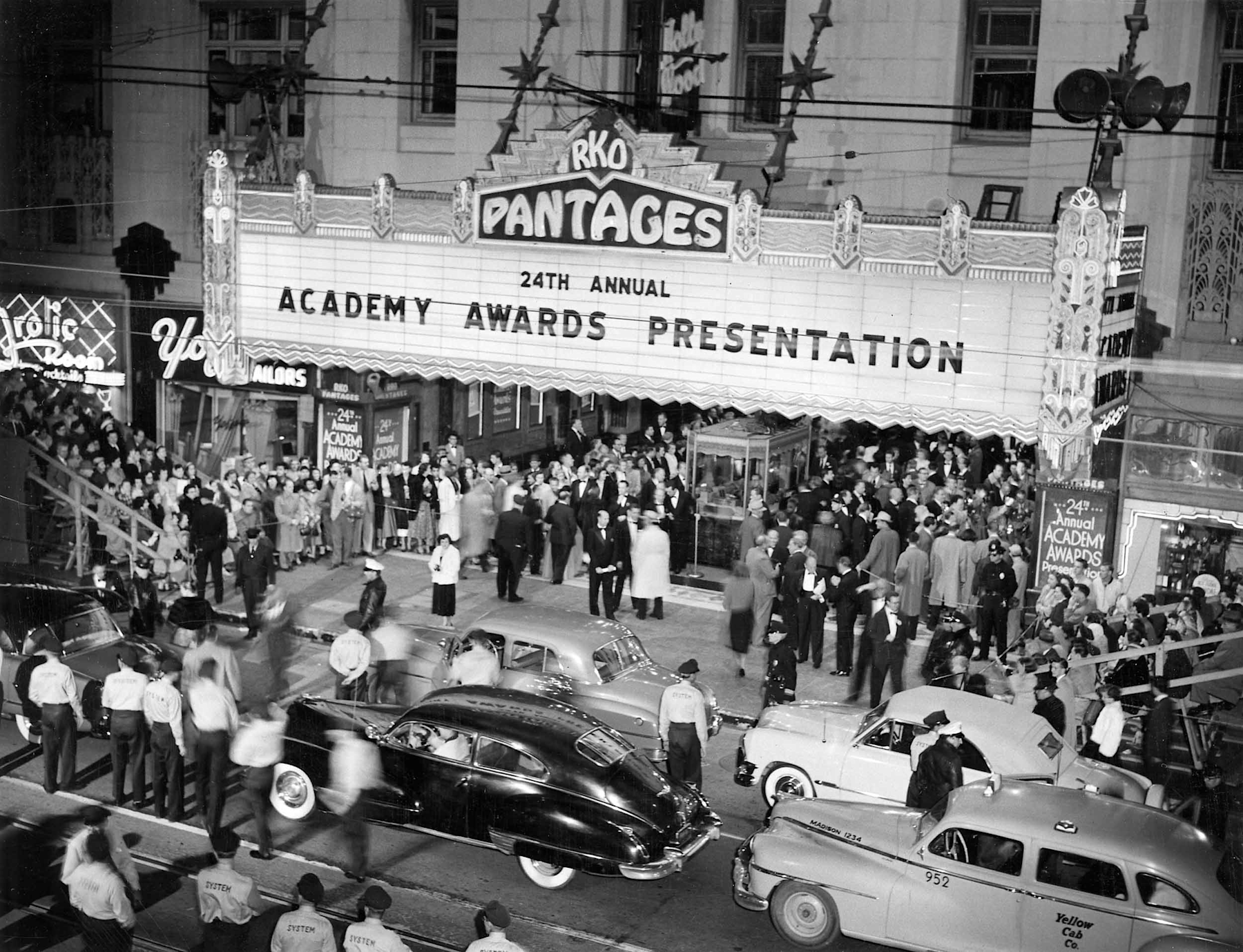
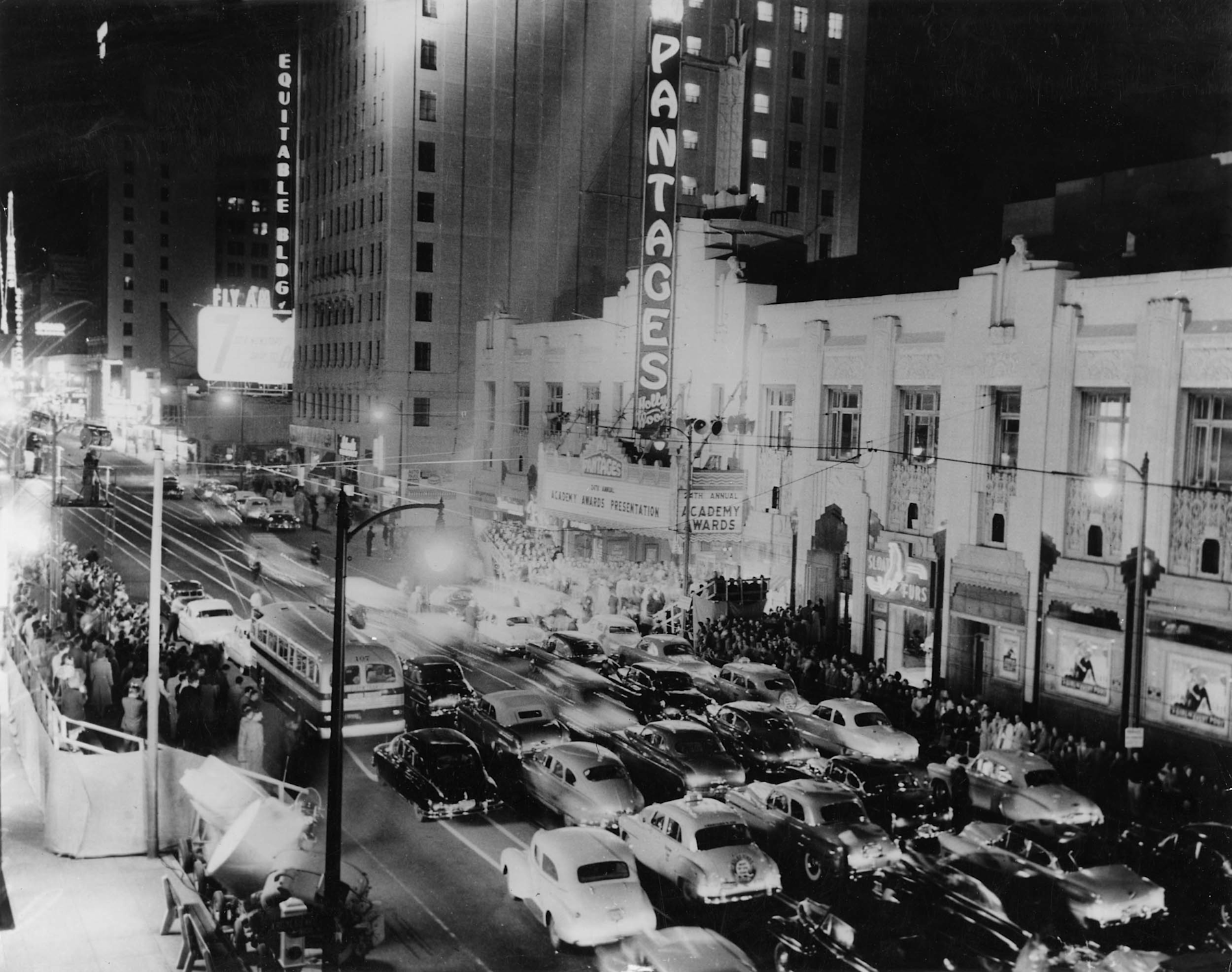
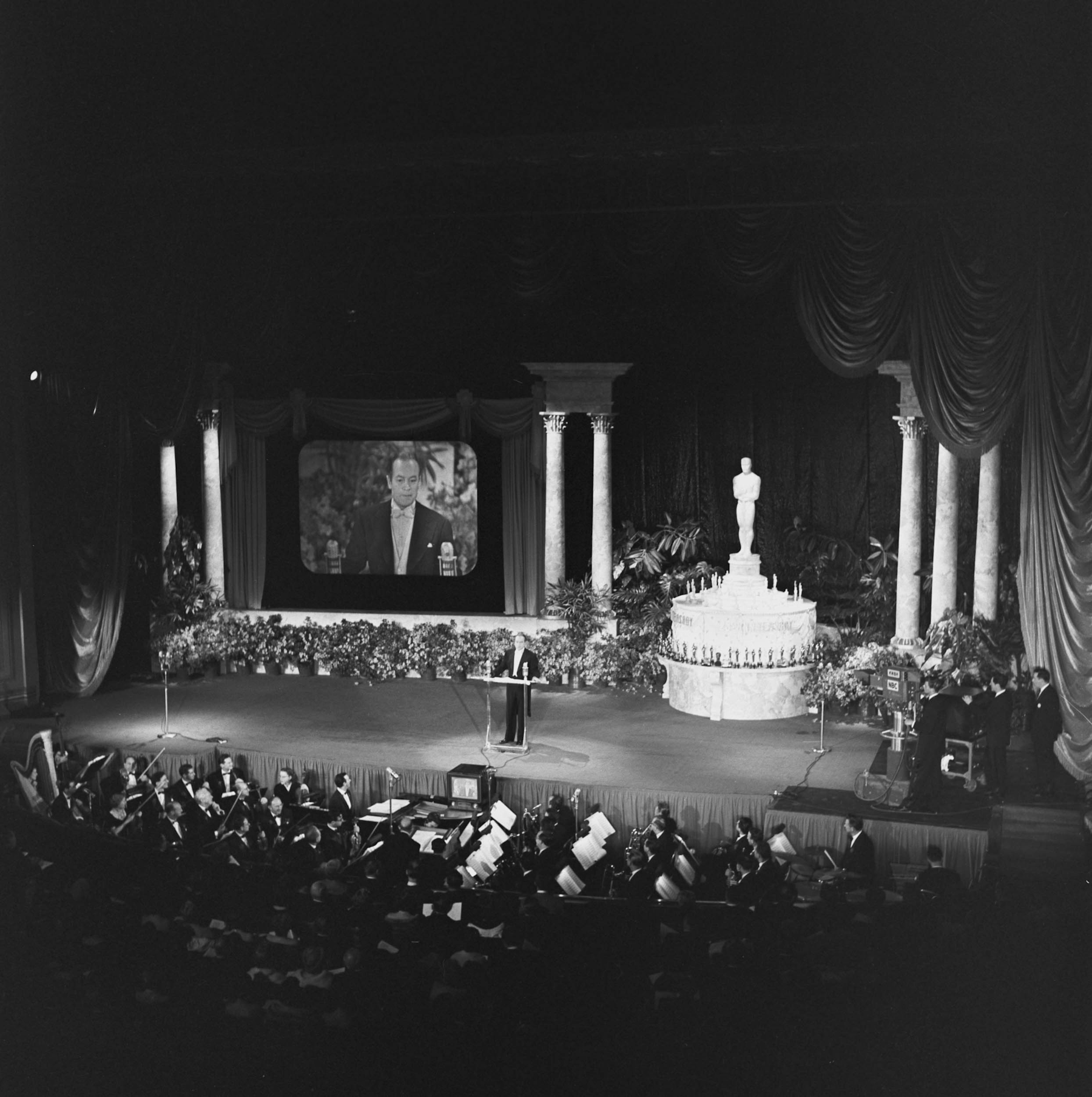
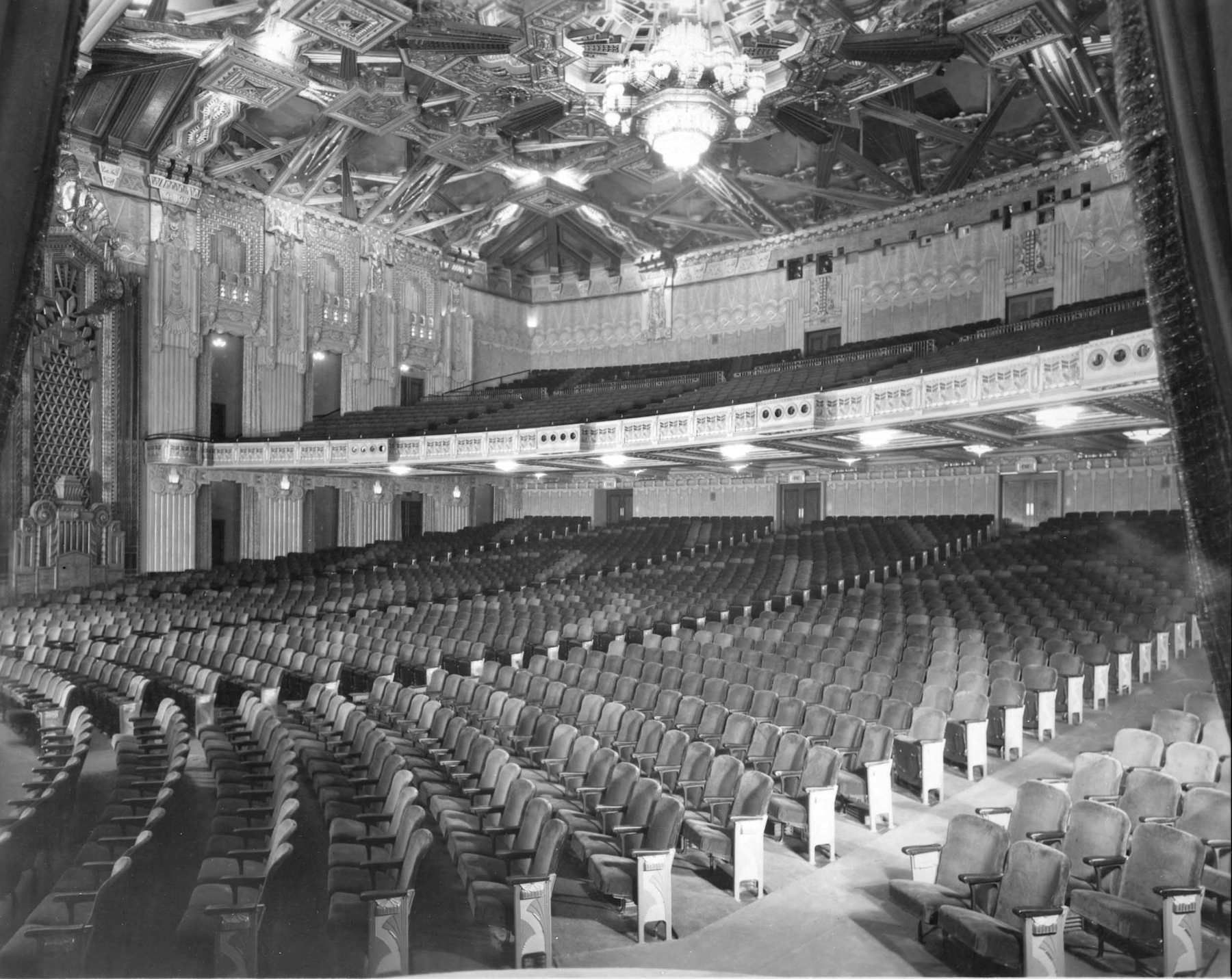
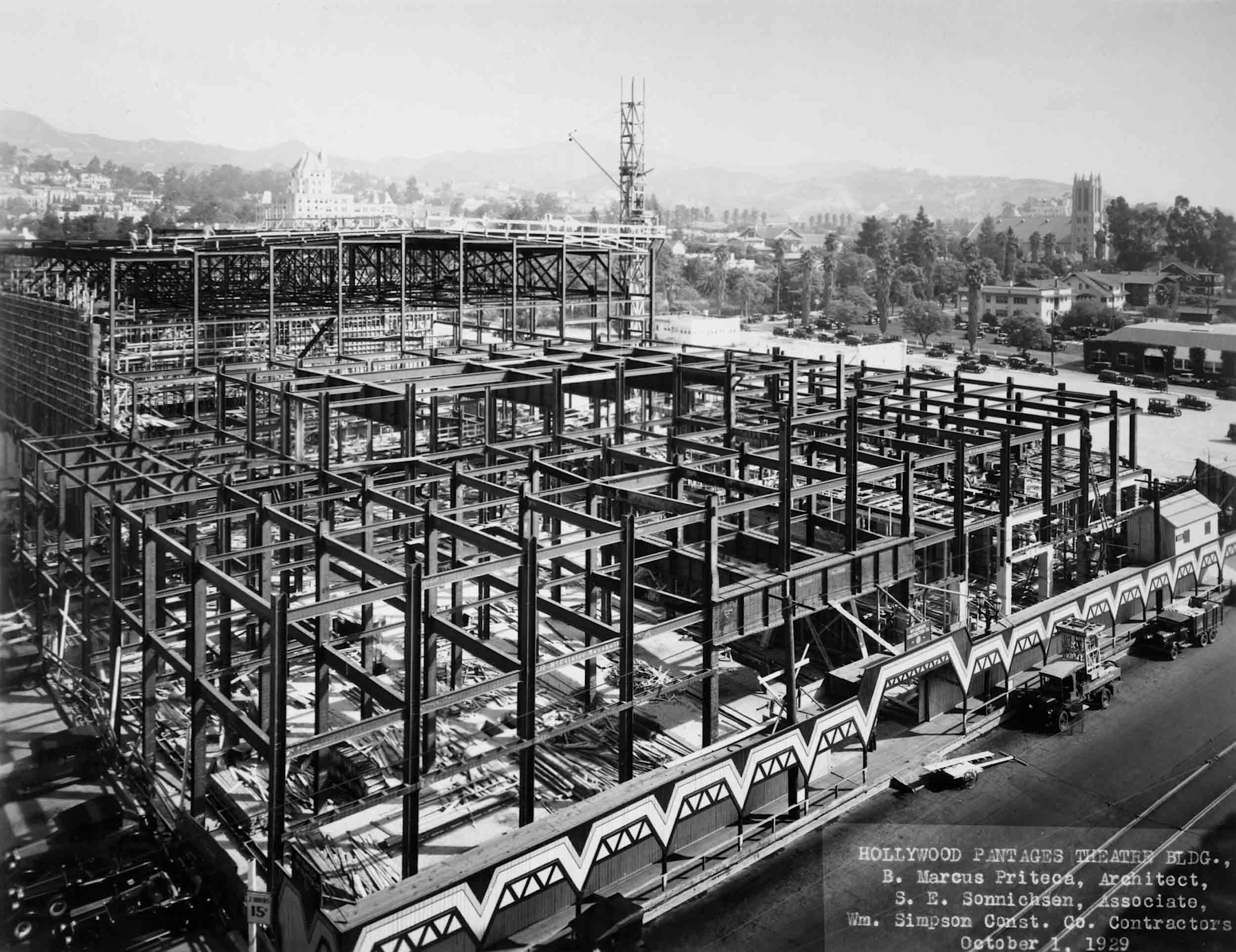
Pantages could not attend the official opening of his Hollywood location, however; he was in jail. He had been charged with the rape of a young dancer auditioning for one of his productions. He would ultimately be acquitted, but the trial added to financial troubles that had started during the Depression, prompting him to sell the venue to Fox West Coast Theaters in 1932.
In 1949, Howard Hughes’s RKO Pictures acquired the Theatre. Under RKO ownership, the Hollywood Pantages hosted the Academy Awards for 11 years, including the ceremony’s historic debut on television in 1953. That first televised event was pre-taped in both the Pantages and New York’s International Theatre, where a smaller ceremony was held for actors working on Broadway. Many were uneasy about the new small-screen format. “Television, that’s where movies go when they die,” host Bob Hope joked during his opening monologue. But the televised Oscars was a runaway success with 10.9 million homes tuning in, making it the most watched television event in history at the time.